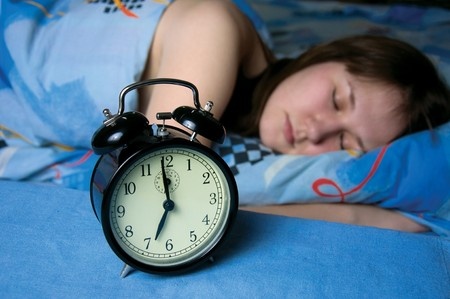 The average person in today’s fast-spaced society requires between at least 7-9 hours of sleep. Unfortunately, not only do most individuals not obtain this most sleep, but they also don’t maintain a consistent sleep schedule day in and day out.
The average person in today’s fast-spaced society requires between at least 7-9 hours of sleep. Unfortunately, not only do most individuals not obtain this most sleep, but they also don’t maintain a consistent sleep schedule day in and day out.
In fact, sleep (or a lack there of) directly influences at least two hormones in your body, known as ghrelin, and leptin. These hormones tell your brain when to eat, and the other tells your body when to stop eating. When we don’t receive enough sleep, these hormones are chemically imbalanced, and will commonly lead to overeating—which is the last thing you want when trying to pursue healthy weight loss. It get’s worse, as unfortunately eating (especially when it’s a lot) before bed, can cause acid reflux that will keep you up. Additionally, the function of processing food in your stomach may also indirectly keep your body and mind awake—or otherwise unable to sleep.
A lack of sleep can even turn into a nightmare of cyclic-like patterns in which you rely on caffeine (coffee) to ignite energy in the morning, crash throughout the day as it wears off, and lack inhibition to workout and make other conscious decisions to eat and treat your body and mind better. Many people on the other hand, are consuming caffeine and nicotine products too close to sleep, as these chemical compounds commonly take upwards of at least 4 hours just to wear off—and stop interfering with efforts to fall asleep. This can also interfere with weight loss efforts, as you’re jeopardizing your ‘energy bank’ to utilize for everyday tasks—such as cardio and weightlifting.
According to a recent study published in the American Journal of Clinical Nutrition, it was found that individuals whom lacked sleep, or deprived themselves for at least a 4-day period extensively reduced their inhibitions and impulse control to ensure desirable levels of healthy fitness, nutrition, and were more prone to failure rates in pursuing proper weight loss and management. Without impulse control, we’re more inclined to go for carbs and other unhealthy foods. Interestingly enough, this is in fact an (if not subconscious) way of pursuing energy for the body, as it’s craving this due to a lack of rest and energy. Most commonly, individuals that snack on unhealthy carbs and sugars before bed (1 hour or less) commonly experience hyperactivity, the ‘jitters’, and an overall lack of ability to get sufficient rest.
Consider a few additional key pointers for increasing sleep and resting your way into a healthier you:
- Try to condition your mind and body to associate your bedroom, specifically the bed, for sleep (and or sex) only. This will train your brain to more swiftly transition into sleep-mode and release melatonin (natural hormone that signals to your body when to go to sleep) when you come into your room.
- Setup the environment, and set the mood. Try to take a relaxing warm shower or bath before bed, turn down the lights, and try to minimize electronics, so that your brain knows it’s time to start drifting off and reenergizing
- Try to stick to a routine as mentioned above, and honor this ritual on a daily basis, and before you know it you should be going to sleep and waking up precisely around the same time everyday.
Do what’s not only best for your body and mind, but also your future. When you’re sleep deprived, your behavior and tarnished judgment is likeable to being intoxicated. Nobody wants this sort of interference in his or her everyday lives.
Image credit: Vadim Balantsev






